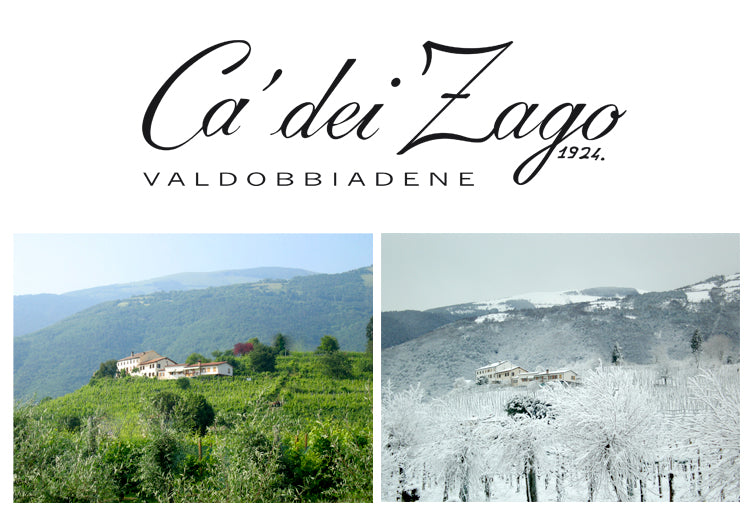
“Family” is a buzzword you hear in all businesses, but after a couple of minutes with Christian Zago, the 5th generation of the eponymous natural Prosecco winery in the heart of Valdobbiadene, you realize that in this particular case it’s not a marketing cliché. Family is naturally present in virtually everything this athletic-built farmer points out while showing you around. Even the bottle of their flagship Col Fondo has barely changed since Christian’s father designed the label in the 1970s; the current Zago generation only added their signatures.
The most important part of this family legacy is the vineyards—now 6.5 hectares in total—and the way the Zagos treat them. Since the beginnings as a mixed farm in 1924, they have never used chemical fertilizers, an approach that Christian is taking even further as an avid practitioner of biodynamics. “Nature is stronger than you. If you break the balance in the vineyard by trying to control it, you can’t recreate it in the cellar, only temporarily coerce the wine into a fake, short-lived equilibrium,” he asserts.
Like many of his fellow natural growers, Christian received a conventional education that led to troubling doublethink between the natural ways of his ancestors and the technical perspective instilled at school. “It got so confusing that I needed to take some time away,” he explains what led him to fly to New Zealand a mere three days after graduation. As the story goes, you sometimes need to make a long pilgrimage in order to realize that true happiness lies at your own threshold; funnily enough, Christian got a glimpse of the revelation already on the plane while reading Nicolas Joly’s famous book on farming. “It was the first time I heard somebody else thinking like my grandfather, describing what my family always did as the right thing for soil health. The moon cycles, giving the wine the time it needs, the cow circle…,” he recalls. After two years spent working for different estates, including a biodynamic one in Martinborough, Christian returned to the family adventure in 2010.
One of the first things he did was start their own compost using materials present in the vineyards; as we walk through one of them, Christian proudly shows us the fragrant brown matter. Another cycle is the cow-related one: when the omnipresent verdant cover crop gets cut, the Zagos supply them to a nearby farmer’s cows, receiving manure in exchange. The plan, however, is to work with their own cows very soon, and he’s also working with a local beekeeper on introducing beehives, further promoting the biodiversity of the mostly complanted vines of Glera, Perera, Bianchetta and Verdiso.
The vines come mostly from old rootstock and Christian’s own massal selection nursed right next to their house. Seeing all this thinking in circles is a great way to get the gist of what the word “biodynamic” (sometimes used as an attractive label, or misunderstood/dismissed as esoteric wizardry) actually means in the real life of a grower: a lot of respect for the soil you live off and seeing the global resources cycle.
The vineyards in Valdobbiadene are quite steep, forbidding almost all use of machinery. No wonder it sometimes takes as much as four times the amount of work compared to the lower parts, where millions of liters of industrial Prosecco (with taste and charm as flat as the vineyards) are born; up here in the hills, you gotta work. Having made the hike, the Zago wines feel like even more of a bargain than they did before, both for the entry-level Col Fondo or their Metodo Classico, a more chiseled side of Zago showcasing the unique terroir of Bastia, a 2-hectare single vineyard with old, complanted vines right next to the famous Cartizze cru.




















































